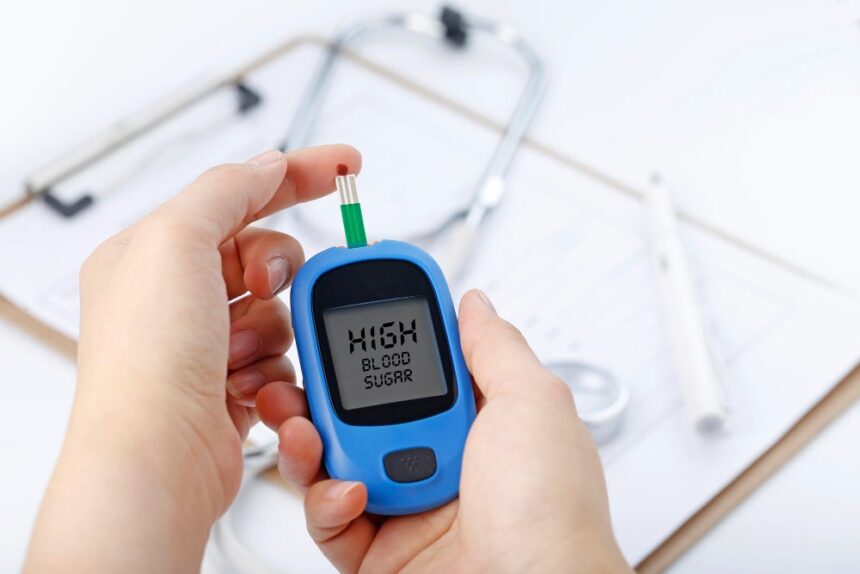What exactly is Diabetes?
Diabetes is an illness that impacts the human body’s energy capacity. It turns almost all meals into glucose, which then flows into the bloodstream. The pancreas produces insulin to manage blood sugar levels, yet a variety of factors might trigger unexpected spikes.
Classifications of Diabetes
Diabetes is classified into three types:
Type 1 diabetes develops when your body fails to generate insulin. This is a problem since insulin is essential for transforming the sugar (glucose) from your meals into energy for your body. To survive, you must take insulin every day.
Type 2 diabetes is a disease in which the body’s insulin synthesis and utilization are compromised, and treatment may include pills or insulin. Type 2 diabetes is most common.
Gestational diabetes affects certain women when they are pregnant. Diabetes typically subsides during childbirth, but it is more likely to recur in the future for both mother and child.
People Also read – The Impact of Hypertension on Human Health, Everything you need to know
Tips for Managing Diabetes
Food

1. Learn how to plan healthy meals: Meal planning techniques that are popular include carbohydrate measurement and plating. This plan includes knowing what to eat and how much to consume. Visit your doctor or an expert nutritionist to determine whether either kind of meal planning is right for you.
2. Understand carbohydrate counting: Carbohydrate counting helps track daily carb consumption, which is especially important for diabetics who use insulin. It includes fruits, and vegetables, which significantly impact blood sugar levels. Reducing refined carbohydrates like white bread and sugary cereals is crucial for maintaining blood sugar stability.
3. Learn related to the plate method: The plate method is a simple meal planning strategy that helps maintain a healthy dietary balance and reduce portion sizes. Fill half of a 9-inch platter with non starchy veggies and divide the other half into sections for lean protein.
4. Balance your medications with food: If you take diabetic medication, you must balance what you eat and drink with your medication. Too little food for your diabetes medication, particularly insulin, might result in severely low blood sugar levels. Too much eating might cause your blood sugar to skyrocket. Speak with your diabetic healthcare team on how to effectively coordinate meal and medication schedules.
Exercise

1. Discuss an exercise routine with a doctor: Healthcare specialists recommend adults engage in 150 minutes of moderate aerobic activity weekly, including walking, bicycling, and swimming, and 30 minutes daily, along with 2-3 strength-training exercises. If you haven’t been active in a long time, your healthcare provider may assess your general health before proposing the best combination of aerobic and muscle-strengthening activity.
2. Maintain a regular workout routine: Inquire with your healthcare provider about the ideal time of day to exercise. In this way, your training program will align with your eating and medication schedules.
3. Understand your blood sugar levels: Before you begin exercising, visit your doctor and discuss what blood sugar levels are required for exercise.
4. Stay hydrated: While exercising, drink lots of water or other fluids. Blood sugar levels can be affected by dehydration.
Medicine

1. Insulin should be preserved carefully: Insulin that has not been properly kept or has passed its expiry date may not function. Store insulin away from severe temperatures. It should not be preserved in the freezer or direct sunlight.
2. Inform your doctor about any medication issues: If your diabetes medication leads your blood sugar to drop too low, you probably need to change the dosage or schedule. Your doctor should adjust your medication if your blood sugar stays too high.
3. Be careful when using new medications: Consult your doctor or pharmacist about new medicines and diabetes medications to avoid adverse effects or interactions, especially with non-prescription pharmaceuticals.
Sickness

1. Try to stick to your diabetic meal plan: Eating normally aids with blood sugar regulation. Keep a supply of stomach-friendly meals on hand. Gelatin, crackers, soups, quick pudding and applesauce are examples.
2. Continue to take your diabetic medication: If you are not feeling like eating food due to an upset stomach or vomiting, then visit your doctor. If you use rapid-acting or short-acting insulin, adjust your dosage or discontinue use. Eating a well-balanced diet will avoid low blood sugar. Long-acting insulin shouldn’t be discontinued, and blood sugar levels should be monitored often throughout sickness.
Stress

1. Take command of your stress: Make healthy changes after you understand how stress impacts your blood sugar level. Learn relaxing methods, and balance job duties. Avoid stressful situations whenever possible. Exercise often to reduce stress and blood sugar levels.
2. Get guidance from doctors: Discover new techniques to deal with stress. Visiting a psychologist or clinical counselor can help to decrease stress. These specialists can assist you in identifying stresses, resolving stressful issues, and learning managing strategies.
Conclusion
After you understand and implement the above tips, you’ll be better prepared to manage diabetes. If you are experiencing trouble managing your blood sugar levels within the target range, get assistance from your diabetic medical care team.


Leave a Reply